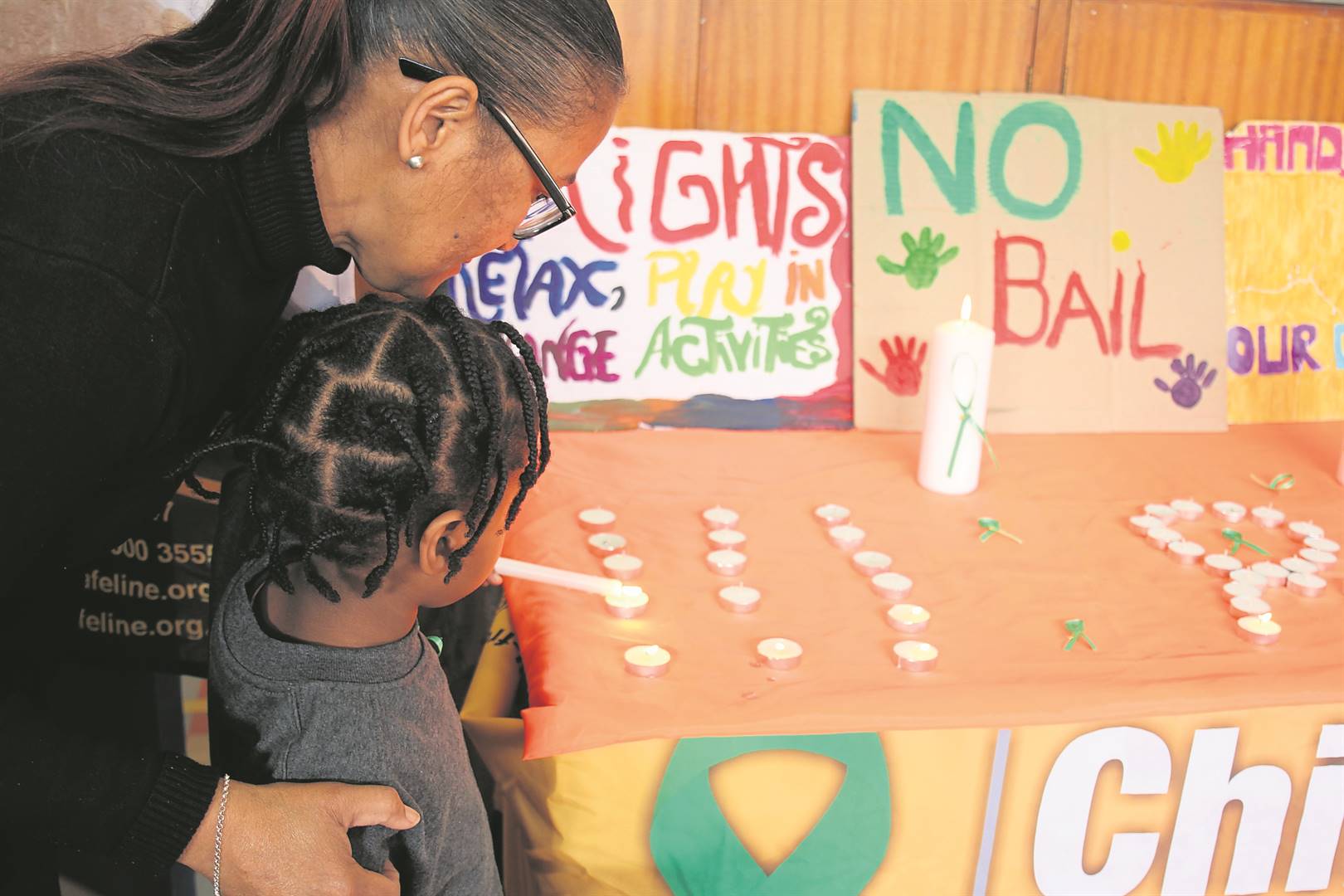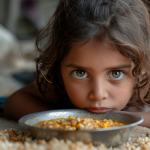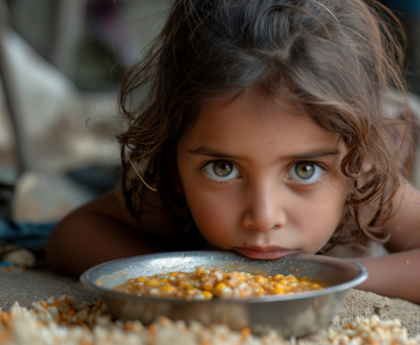
Safeline hosted a range of events in commemoration of Child Protection week which included a candle ceremony for victims of abuse.PHOTO: Samantha Lee-Jacobs
South Africa has a high rate of crimes against children.
And for organisations fighting this battle, child protection week observed this year from Wednesday 29 May to Wednesday 5 June, it is a time to drive home advocacy against child violence and abuse.
For more than 30 years, Safeline Child Abuse Treatment and Prevention Centre has provided therapeutic counselling for children aged two to 18, specifically focusing on child victims of sexual abuse.
The organisation over the last 17 years has engaged in awareness and prevention work focusing on empowering children and adults to speak out against child abuse as well as reporting such incidences.
In commemoration and advocacy of Child Protection Week, the organisation hosted events in Athlone, Grassy Park and will end it with their annual prayer service in Portlands on Thursday.
“Child Protection week is an important week. Its an opportunity for everyone to intensify the awareness and prevention programmes, even though we focus on these programs 365 days of the year. The message from Safeline this year- how does a person experiencing sexual assault and rape seek help,” says Taslynn De Wee of Safeline.
Rape among children
A report released by Statistics South Africa in 2024 analysed the reporting of crimes against children over a five year period.
This shows that rape cases for children increased by 6,3% between 2015/16 and 2019/20, with sexual assault cases for children increasing by 1,4%.
With violent crime such as murder, robbery and aggravated assault common in the country, the StatsSA findings indicate rape as the most frequently reported crime for children aged 17 and below between 2015/16 and 2019/20, followed by common assault and assault resulting in GBH.
“A comparison between the total reported cases of rape and sexual assault to police compared to those registered for children aged 17 years and younger shows consistently higher per capita rape and assault rates among children. The per capita rate of rape among children rose from 96 per 100 000 children in 2015/2016 to 103 per 100 000 children in 2018/2019, before declining to 95 per 100,000 children in 2019/2020. However, the total per capita rape rate remained steady at 70 per 100 000 population from 2015/2016 onwards. Sexual assault rates were notably lower compared to rape rates, but per capita sexual assault was nearly twice as high among children as it was in the general population. In 2015/2016, per capita sexual assault stood at 20 per 100 000 children compared to 10 per 100,000 total population,” reads the report.
In 2019/20, Kwazulu-Natal reported the most rape cases, while sexual assault cases were highest in the Western Cape.
“In my experience over the years, rape by a family member and fear
of the victim’s family being endangered have become common reasons for rape not being reported. Within our low socio-economic communities where mothers are financially dependent on their partner or are dependent on family members for living space, we find lack of support for any child in ensuring that the crime is reported,” says De Wee.
Rape unreported
While there are many reasons rape goes unreported, Safeline outlines the following 10 reasons based on observations:
- Fear of not being believed, especially if the abuser is older, more powerful or respected in the community.
- Fear of humiliation by family, the police, friends, colleagues or others. Society tends to blame victims, especially female victims, or to emasculate male victims of sexual abuse.
- Fear of retaliation by their abuser or rapist if he finds out he’s been reported, especially if he isn’t arrested and punished.
- Fear of their (the victim’s) family being endangered if the abuse or rape is reported.
- The victim is unsure of whether the sexual act actually constituted rape or not.
- Damaging, incorrect and sexist cultural beliefs that it’s the victim’s ‘fault’, or that anyone who gets raped ‘deserved it’ or ‘asked for it’ – none of these are true, and no victim ever deserves to be assaulted in any way, regardless of any circumstances or factors.
- If the perpetrator is someone the victim knows or regularly spends time with, they may not want to report him for fear of ‘hurting’ him or damaging his employment prospects, reputation, etc.
- Lack of faith in the ability of the justice system to properly punish the perpetrator.
- Man denying he raped his victim, and people believing him and not his victim.
- Sexual assault is often perpetrated by men that the victim knows and loves, and who they don’t want to report, especially if they are dependent on him.
Acknowledging that there may also be a breakdown in faith in the justice system, this coupled with volatile home environments in gang-ridden communities may further prolong seeking justice.
“I do however believe that if victims and their families are effectively and caringly assisted throughout the steps of reporting the rape, beginning at the police station, and ending in our court system we could find the opportunity for our communities to build this bridge of hope.
“Our country must pay attention to our conviction rates, families are not motivated to report rape because they feel nothing happens to the offenders. So many offenders are out on bail with conditions and yet victims still face the horrific experience of intimidation by these very individuals,” says De Wee.
“In my years I have had many families describe their experience at the police station as a horrific one. They are reluctant to report to the police because they are left feeling as if they are responsible for the crime. We know victim support rooms have been created in our police stations for the very reason that victims could feel a sense of safety when reporting such crimes. The question is then, if so many families are filled with fear to report rape to the police, are the victim support rooms being used as effectively as it should be used?”
Signs there may be abuse
Victims of abuse often present with behavioural problems when they are being abused. While this list may not entirely indicate a child is being sexually abused, it may be a guide to parents and caregivers.
- Unexplained changes in behaviour or personality;
- Becoming withdrawn;
- Seeming anxious;
- Becoming uncharacteristically aggressive;
- Lacks social skills and has few friends, if any;
- Poor bond or relationship with a parent;
- Knowledge of adult issues inappropriate for their age;
- Running away or going missing;
- Always choosing to wear clothes which cover their body.
De Wee says there is help available and encourages the community to seek assistance if they know of violence against children.
- Call Safeline on 021 705 2147 or Toll Free on 080 003 5553.
This post was originally published on 3rd party site mentioned in the title of this page




